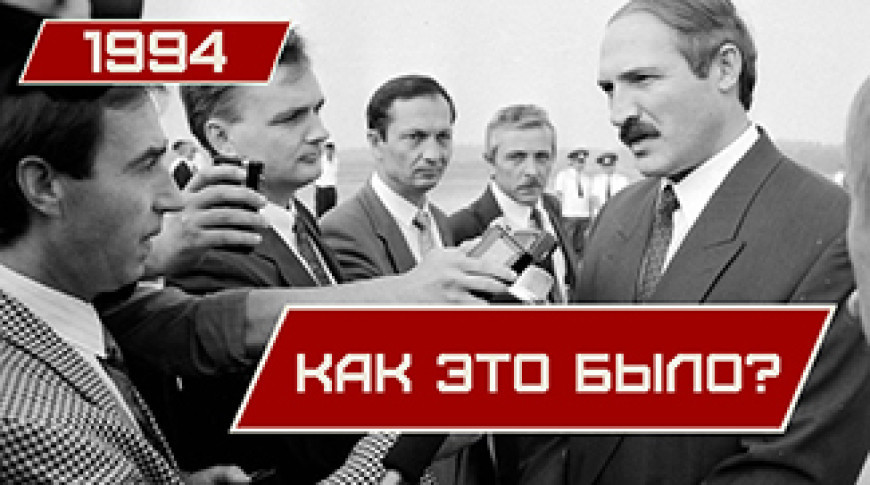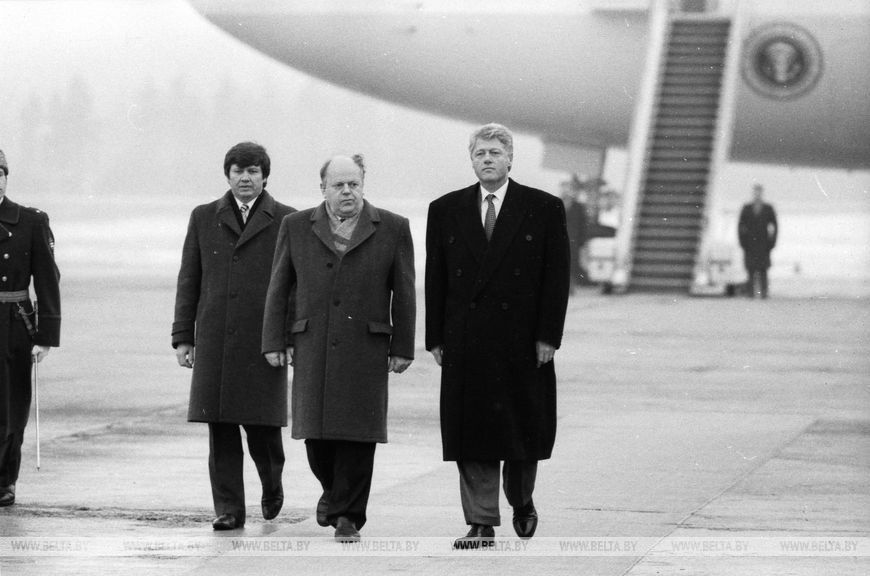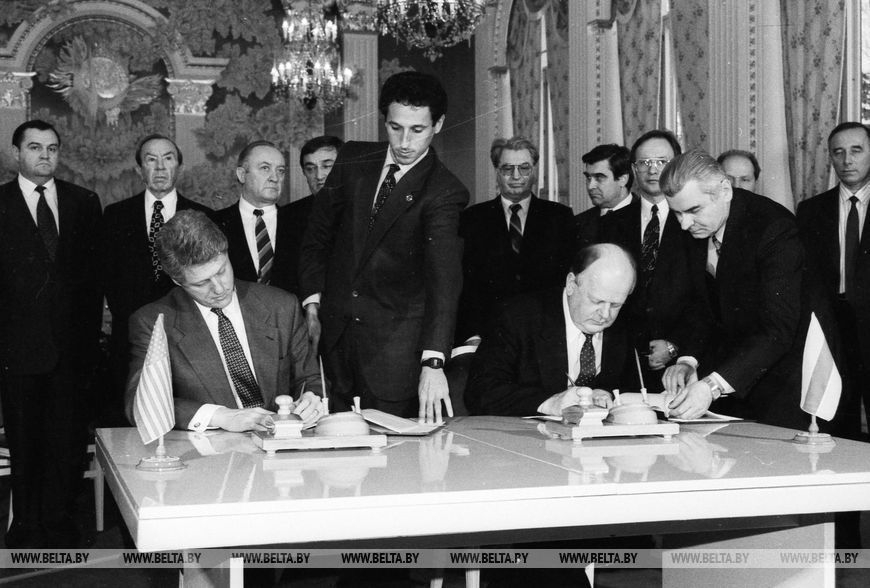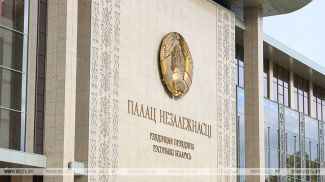
MINSK, 29 September (BelTA) – The significance of the year 1994 for the history of sovereign Belarus cannot be overestimated. In fact, it was the starting point for a sovereign, independent state. To find out why this year was so consequential for the country (and beyond), watch the new episode of the BelTA YouTube project “How It Was”.
A young man came to power in Belarus 30 years ago. He did not have the backing of the state apparatus or a powerful stream of donor money to fund his campaign; he could only rely on the support of the people. But we will talk about this later. Let's start our story from the very first days of 1994.

In mid-January U.S. President Bill Clinton arrived in Belarus. The program of his 6-hour visit was packed: a meeting with Chairman of the Supreme Council Stanislav Shushkevich and Chairman of the Council of Ministers Vyacheslav Kebich, a meeting with veterans of the Great Patriotic War on Victory Square, a lecture at the Academy of Sciences and a visit to the Kuropaty memorial site.


Before coming to Belarus, Clinton visited Kiev. However, he spent only 1.5 hours there. From Kiev he went to Moscow together with Ukrainian President Leonid Kravchuk. It was there that the basic principles of destruction of strategic nuclear warheads located in Ukraine were signed. Belarus rejected it back in 1992, signing the Lisbon Protocol to the 1991 Strategic Arms Reduction Treaty.
A little side-note. Former U.S president Nixon called the situation in Ukraine 'highly explosive' in his 1994 letter to Clinton. Quote: “If it is allowed to get out of control, it will make Bosnia look like a PTA garden party.” Remember the inter-ethnic armed conflict in Bosnia and Herzegovina in 1992-1995? He meant that conflict.
Former U.S. President Nixon urged Clinton to strengthen the U.S. diplomatic representation in Kiev. Another quote: “All the other nations in the near abroad are important. But Ukraine is in a different class - it is indispensable.”

Now, decades later, it is obvious: Clinton's trip to Russia, Belarus and Ukraine was not a courtesy call. Everything was very well calculated. The United States solved at least two problems: weakened the states militarily and economically. They promised to generously shower them with dollars in order to destroy their industrial potential. Both Belarus and Ukraine were prescribed the same scenarios. Only Washington did not take into account the human factor. What is called the role of the individual in history. Here we will move on to the first presidential elections in our country.

Six presidential hopefuls collected enough signatures to hit the campaign trail: Prime Minister Vyacheslav Kebich, former Chairman of the Supreme Council Stanislav Shushkevich, leader of the Belarusian Popular Front Revival Zenon Pozniak, Secretary of the Central Committee of the Party of Communists of Belarus Vasily Novikov, MP, Director of the Gorodets state farm from Shklov District Aleksandr Lukashenko, and Chairman of the Union of Agrarians Aleksandr Dubko.
Even before the election, Lukashenko was known for his zero-tolerance towards corruption. At a meeting of the Supreme Council commission, which was popularly called the anti-corruption commission, Lukashenko delivered a big report and cited many facts testifying to the abuse of office by top officials. Parliament Speaker Stanislav Shushkevich was seriously challenged. The matter was about cover-up of corrupt officials. In fact, this report made the already popular MP Aleksandr Lukashenko even more popular. Among the people! But the members of the bureaucratic elite began to fear him.

“You say, Stanislav Stanislavovich, that we shouldn't look for the guilty parties! We must, Stanislav Stanislavovich! So that it does not happen again! Everyone should know in advance that any wrongdoing will be harshly punished! Not only in the name of the future. In the name of our little children! We must do it! We don't need to gloss over these problems! People have to answer for their crimes!” Aleksandr Lukashenko said back then.
Lukashenko and Kebich received the most votes in the ballot and proceeded to the runoff election.
At the televised debate, the future first president of Belarus presented evidence that exposed attempts to derail the election.
“Vyacheslav Frantsevich, I would like to hand you a document. It contains 12 points related to the plans to disrupt the election. I am not blaming you. Perhaps you are unaware of them, but I asked Leonid Sinitsyn to prepare this document. You had contacts with Pozniak and Trusov. Maybe it is not related to you, but to Grib. He knows that they made a proposal to boycott the election. You know that the people from the government are pursuing a similar policy. I have already said that the voting day will be held on a weekday. You know that some company directors seek to declare Monday-Tuesday days off so that people spend more time at their dachas. We have also received information that there are plots to suspend public transport, including trains and buses, so that people could not return home until 22:00. Members of election commissions are even told not to come to the polling stations on the voting day. Many polling stations have not been opened yet - this is, of course, the shortcoming of the Central Election Commission. Servicemen from the Defense Ministry have gone to villages to call on people not to come to the polling stations,” these facts were laid out by Aleksandr Lukashenko.
Attempts to disrupt the election failed. Aleksandr Lukashenko won the run-off with over 80% of the vote. The rest is history.

What was Aleksandr Lukashenko accused of in his first year as president? How did the young Belarusian leader really feel about closer alliance with Russia? And why is the sovereignty of the Belarusian people inviolable for Aleksandr Lukashenko? This and more in the new episode of our YouTube project “How It Was”.













